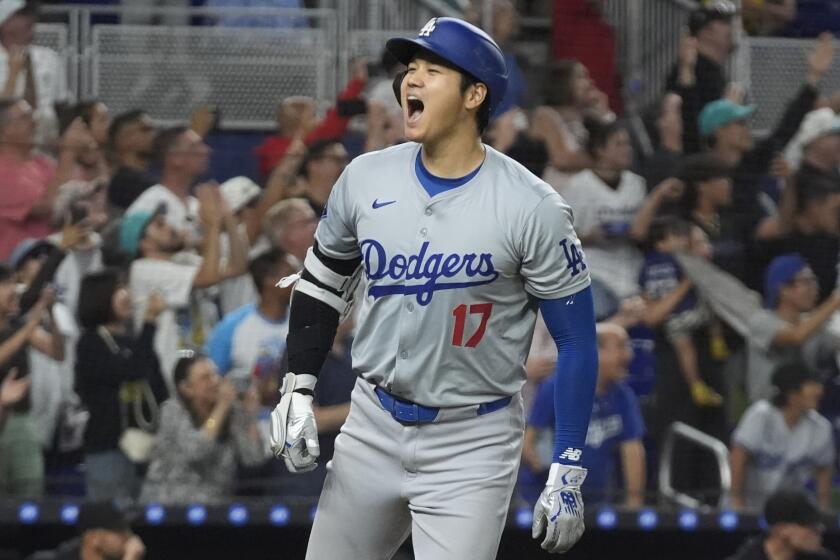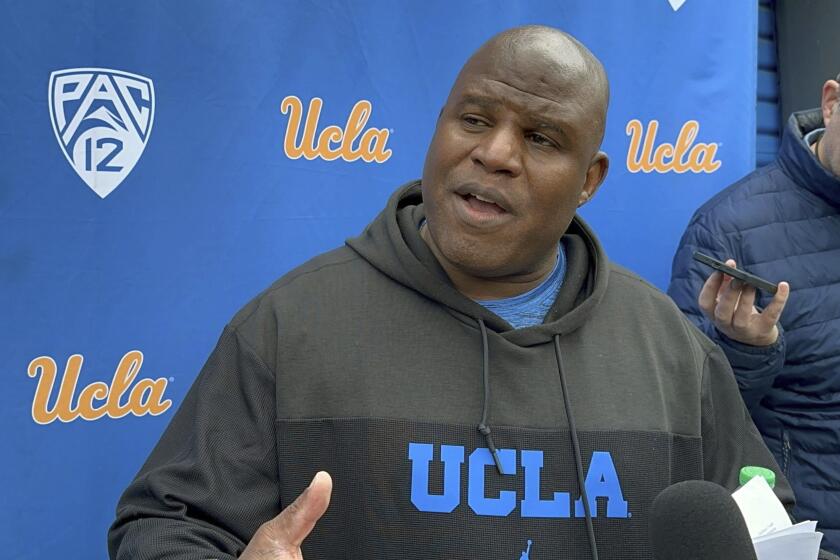Lance Armstrong’s attorney says anti-doping agency is soliciting cyclists
One of Lance Armstrong’s attorneys Monday said the U.S. Anti-Doping Agency has contacted cyclists and offered them reduced suspensions if they can provide evidence implicating the legendary rider in doping.
Tim Herman, a lawyer from Austin, Texas, who represents the seven-time winner of the Tour de France, declined to name the riders who have been approached, saying only that he has become aware of USADA offering what he termed “sweetheart deals” to them if they testify or otherwise tie Armstrong to cheating.
USADA late Monday issued a statement in response to Herman that said: “Our effort in any investigation is a search for the truth, nothing more and nothing less. On behalf of clean athletes, we will fairly and thoroughly evaluate all evidence of doping to reveal the truth. When the process results in credible evidence of doping, clean athletes can rest assured we will take appropriate action under the rules established by federal law.”
A grand jury in Los Angeles is looking into doping in cycling, and federal investigators have issued subpoenas for documents and testimony from several riders, including former Armstrong teammate Tyler Hamilton and former Tour de France winner Greg LeMond.
Another former Tour winner, Floyd Landis, has accused Armstrong of using banned performance-enhancing drugs while both rode for the U.S. Postal Service team. His contentions, which were first revealed in May, are being investigated by the grand jury. In a series of e-mails, Landis also accused Americans George Hincapie, Levi Leipheimer and Dave Zabriskie of participating in illegal doping practices. All three just completed the Tour de France.
Herman said it would be illegal for federal investigators to try and broker deals with other cyclists.
Hamilton is currently serving an eight-year doping ban that effectively ended his career last year. Hamilton had served a two-year ban after failing a drug test at the 2004 Spanish Vuelta. He failed another test last year for a drug he said he was taking to help his clinical depression.
Landis also served a two-year drug suspension after failing a test during his 2006 Tour de France victory season. Landis fought the ban and accused a French lab of making errors in the handling of his samples. He now admits doping during that race.
In the course of defending himself after the 2006 Tour, Landis accused USADA of contacting his attorney at the time and trying to gather evidence against Armstrong.
Landis said at the time that he was so bothered by the USADA offer that he refused to respond.
diane.pucin@latimes.com
More to Read
Go beyond the scoreboard
Get the latest on L.A.'s teams in the daily Sports Report newsletter.
You may occasionally receive promotional content from the Los Angeles Times.










